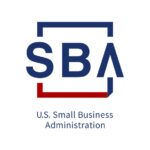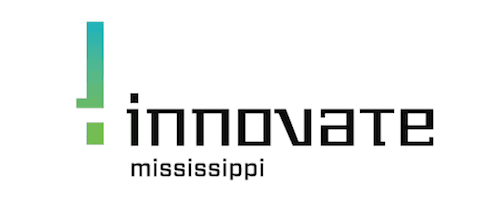Mississippi resources for
securing
sbir/sttr funding
The Small Business Innovation Research (SBIR) and Small Business Technology Transfer (STTR) programs help small businesses develop new products and technologies by providing government funding. These programs are highly competitive, meaning many businesses apply, but only the best ideas get selected. If your idea is chosen, you can receive money from one of 11 Federal agencies to support your research and development (R&D). This funding allows you to work on your project and potentially turn your idea into a real product that can be sold in the market.
MS-FAST
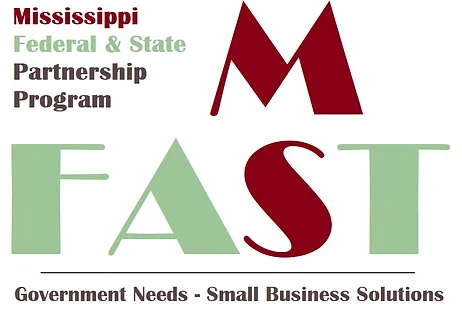
The MS-FAST Program, run by Innovate Mississippi and the USM Office of Innovation Management, helps small businesses in Mississippi apply for SBIR and STTR funding. The goal is to get more small businesses to submit proposals and win these awards. The program gets some of its money from the U.S. Small Business Administration (SBA) through a grant.
To meet the goals of the program MS-FAST provides:
MS-FAST Services
The program helps MS small businesses with SBIR/STTR proposals by offering workshops, informative newsletters, proposal development assistance, access to university resources, commercialization sessions, and financial support.
Financial Support
The MS-FAST Phase 0 Program offers up to $3,000 to help MS small businesses develop SBIR/STTR proposals. Similar programs, like the DOE and LA-FAST Phase 0, also provide financial support to increase SBIR/STTR participation in their regions.
Helpful Links
The SBIR/STTR programs span 11 federal agencies, each offering support for small businesses with specific research and development opportunities.
By including small businesses in the nation’s R&D, high-tech innovation is stimulated and the nation gains entrepreneurial spirit as it meets its specific research and development needs. The SBIR and STTR programs award nearly $3 billion in contracts and grants annually to small businesses. These two programs target the entrepreneurial sector because that is where most innovation and innovators thrive. However, the risk and expense of conducting serious R&D efforts are often beyond the means of many small businesses. By reserving a specific percentage of federal R&D funds for small business, SBIR and STTR protect the small business and enable it to compete on the same level as larger businesses. This program funds the critical startup and development stages and it encourages the commercialization of the technology, product, or service, which, in turn, stimulates the U.S. economy.
For more information and to request assistance contact Joe Graben, Innovation Ecosystem Manager.
This MS-FAST page is currently undergoing redevelopment with additional information and resources to be added in the near future. Please check back for updates. In the meantime for more information and resources click here.
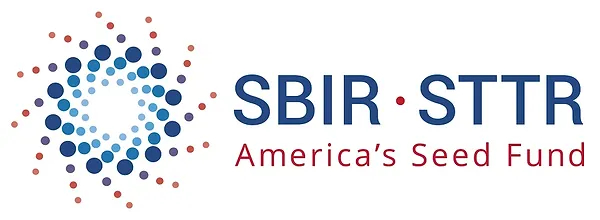
SBA’s funding is not an endorsement of any products, opinions, or services.
All SBA programs are extended to the public on a nondiscriminatory basis.
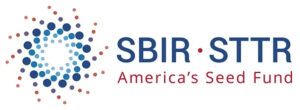
EVENTS

America’s Seed Fund Road Tour was a national outreach effort connecting innovators and entrepreneurs to non-dilutive technology funding opportunities through the SBIR and STTR programs, known as “America’s Seed Fund.” The tour played a crucial role in encouraging innovation and entrepreneurship among underrepresented groups while supporting the SBIR/STTR mission of fostering scientific and technological excellence to strengthen the national economy. Federal agency representatives attended events in Arkansas, Mississippi, Louisiana, and Texas, helping participants navigate over $4 billion in early-stage funding opportunities.
America's Seed Fund Week 2024 - Virtual Road Tour!
America’s Seed Fund Week 2024 – Virtual Road Tour offers a comprehensive overview of the SBIR and STTR programs, the largest source of non-dilutive funding for high-growth startups and small businesses. The sessions include insights from federal agency representatives, detailed guidance on the application process, and specific presentations such as “NSF – The Project Pitch Process.” Watch these recordings to deepen your understanding of how to leverage America’s Seed Fund for your innovative ventures. Video recordings are available here.
UNIVERSITY-SPECIFIC WEBINAR
This four-topic webinar is designed to augment the SBIR On-Demand bootcamp with information specifically geared to University personnel who seek funding through SBIR programs.
MS-FAST Services
Below is a list of the services the MS-FAST program offers to Mississippi small businesses and individuals interested in participating in the federally funded SBIR/STTR programs. These services are aimed at making the small business’ proposal more competitive.
1. Information – Through workshops, e-newsletters, and one-on-one meetings, to make aware and inform Mississippi companies of the federal SBIR/STTR programs and the available research and development opportunities under these programs. This includes assistance in identifying solicitation topics.
2. Proposal development – Through one-on-one assistance, help better educate Mississippi companies in the federal SBIR/STTR program solicitation processes and proposal development process. This includes assistance in reviewing draft proposals.
3. Financial support – Through the MS-FAST Phase 0 program to Mississippi companies financial assistance in developing competitive Phase I proposals to the federal SBIR/STTR solicitations.
4. Technical resources – Assistance to help identify and provide access to university resources and faculty in support of SBIR/STTR proposals and projects. This includes faculty expertise and intellectual property holdings and the policy and procedures for accessing them in support of SBIR/STTR efforts.
5. Commercialization – One-on-one sessions and workshops to provide assistance helping commercialize new or improved products and or services developed under SBIR/STTR Phase I & II contracts and grants by Mississippi companies. This include Business Model Development and understanding Federal Contracting.
Below is a list of the services the MS-FAST program offers to Mississippi small businesses and individuals interested in participating in the federally funded SBIR/STTR programs. These services are aimed at making the small business’ proposal more competitive.
Through workshops, e-newsletters, and one-on-one meetings, to make aware and inform Mississippi companies of the federal SBIR/STTR programs and the available research and development opportunities under these programs. This includes assistance in identifying solicitation topics.
Through one-on-one assistance, help better educate Mississippi companies in the federal SBIR/STTR program solicitation processes and proposal development process. This includes assistance in reviewing draft proposals.
Through the MS-FAST Phase 0 program to Mississippi companies financial assistance in developing competitive Phase I proposals to the federal SBIR/STTR solicitations.
Assistance to help identify and provide access to university resources and faculty in support of SBIR/STTR proposals and projects. This includes faculty expertise and intellectual property holdings and the policy and procedures for accessing them in support of SBIR/STTR efforts.
One-on-one sessions and workshops to provide assistance helping commercialize new or improved products and or services developed under SBIR/STTR Phase I & II contracts and grants by Mississippi companies. This includes Business Model Development and understanding Federal Contracting.
Financial Support
The MS-FAST Ph 0 provides financial assistance (up to $3,000) to qualifying Mississippi small businesses to help offset the cost of developing a Phase 1 or Phase 2 SBIR/STTR proposal for submission to a federal agency’s solicitation. To qualify the small business must be registered with the Mississippi Secretary of State Office and have 500 or fewer employees. Other restrictions based on federal agency’s solicitation requirements may apply.
MS-FAST Phase 0 Request for Proposals
Announcement Date: Open year round
Due Date: Proposal due at least 30 days before Phase 1 due date.
Award Notice: Within 20 days of submission if selected for award.
Program Objective:
The objective of the MS-FAST Phase 0 Program is to provide funding to Mississippi small businesses, university
researchers, and others conducting preliminary research and planning in support of a Small Business Innovation
Research (SBIR) or Small Business Technology Transfer (STTR) Phase I and Phase II proposals. Funds from the Phase 0
award may also be used to obtain assistance from a university faculty member in preparing an SBIR/STTR Phase I or II
proposal. The SBIR/STTR programs are federal R&D programs providing more than $ 3 billion annually to small
businesses researching and developing innovative new products or technologies.
Applicant Eligibility:
Mississippi registered small businesses (generally defined as businesses having 500 or fewer employees) are eligible to
participate in the Phase 0 program. Faculty members, graduate students and other university personnel are also eligible
to participate in the Phase 0 program if they either have identified a Phase I Mississippi business partner or intend to
start their own business in Mississippi should their Phase I proposal be awarded. Small businesses are encouraged but
not required, as appropriate, to partner with universities andfaculty and use them to assist the small business in
preparing a Phase I or II SBIR/STTR proposal and/or to conduct preliminary research to strengthen a Phase I SBIR/STTR
proposal.
Eligible Use of Funds:
Phase 0 program funds may be used to contract with a university faculty member to assist the small business in
preparing a Phase I or II SBIR/STTR proposal, to travel to the federal agency to discuss whether the company’s plans for
an SBIR/STTR Phase I proposal fit the agency’s priorities, and/or to conduct preliminary research leading to the
submission of a competitive Phase I proposal. Indirect costs are not an allowable expenditure.
Projects may be awarded up to the following amounts:
Research to acquire preliminary data: $1500
Proposal writing and assistance: $1500
Travel grants: $1000
Maximum total grant (using any combination of the above three categories): $3000
Evaluation Process:
Proposals will be reviewed by individuals representing small businesses, university researchers and people with knowledge in the field. For the protection of researchers and businesses, all reviewers will be required to sign a nondisclosure agreement. Proposal review will focus on scientific and technical merit and will consider the following criteria: (1) uniqueness of the proposed concept as technical innovation, (2) scientific quality of the proposed preliminary research*, (3) soundness of the research plan to support a Phase I proposal*, (4) potential of the proposed concept for commercial applications, (5) qualifications of the research team*, (6) relevance of the budget including any matching funds, and (7) clarity of the proposal. Proposals that show a cost-sharing component from the small business will be more favorably reviewed. Because experience has shown that SBIR/STTR proposals having university faculty involvement are more likely to obtain funding, preference will be given to proposals that have a university participant.
* Relates to proposals requesting support for Research to acquire preliminary data only.
Award & Report Process:
Fifty percent of the funds will be paid at the time of the award following a meeting by the awardee with Innovate
Mississippi. The last 50 percent will be awarded upon the awardee providing of a copy of the Phase I or II proposal
submission receipt from the federal agency to which the proposal was submitted indicating acceptance of the proposal
for review.
Application Process:
A 2 to 3 page application (excluding cover page) outlining the proposed project and expected outcomes is requested. The
following elements should be included in the application:
Cover Page: Date, Project Title, Principal Investigator, Business to submit SBIR/STTR, Address, Phone Fax, Email, and Signature.
Project Abstract: Brief explanation of the proposed innovation and its relationship to SBIR/STTR Phase 1 and 2.
SBIR/STTR Agency: Identification of Agency(s) to and its topic/subtopic area which SBIR/STTR Phase I will be submitted. In the case of a Phase II a copy of the Phase I award agreement cover sheet. NOTE: If NSF is the selected federal agency for submission you are required in addition to submit with the Phase 0 a copy of the NSF Project Pitch Invitation confirming your company has been invited to submit a full Phase 1 proposal. NSF accepts Phase 1 proposals from only invited companies. For more information see: https://seedfund.nsf.gov/project-pitch/
Commercial Opportunities: Identification of product or service to be developed and anticipated value proposition(s) to each identified customer market segment.
Research Team: Discuss qualifications of the members of the research team.
Phase 0 Technical Objectives
Phase 0 Work Plan & Time Line
Phase 0 Anticipated Results
Phase 0 Budget
Use this power point presentation for additional information on Preparing the Phase 0 Proposal.
Submission Process:
Proposals must be received at least 30 days prior to the relevant federal SBIR/STTR solicitation due date.
Submit proposals using this form: Phase 0 SBIR/STTR Application – Airtable
This DOE SBIR/STTR Phase 0 Assistance Program is aimed at helping eligible small businesses successfully apply for DOE SBIR/STTR Phase I funding. The overall goal of the DOE Phase 0 Assistance Program is to increase the number of responsive, high quality proposals submitted to the DOE from all first-time DOE SBIR/STTR applicants. Eligible parties receive one or more specialized services following an initial assessment by a member of the Dawnbreaker team. Optional services include:
- 1) Letter of Intent (LOI) writing assistance
- 2) Phase I Proposal Preparation, Review and Registration Assistance
- 3) Market Research Assistance
- 4) Technology Advice and Consultation
- 5) Intellectual Property Consultation
- 6) Indirect Rates and Financials
- 7) Travel Assistance
The DOE is particularly interested in providing support to U.S. women-owned, and socially and economically disadvantaged small businesses located anywhere in the U.S. and its territories that work with advanced technologies. And to any U.S. small, advanced technology firms currently located in the following under represented states, districts, and territories: AK, AR, DC, GA, HI, IA, IN, KS, LA, ME, MN, MS, MO, NC, NE, ND, NY, OK, PA, PR, RI, SC, TN, WV, WI. For more information and how to apply click here.
Associated with their Phase 0 program, the DOE has a series of excellent online tutorials on their SBIR/STTR program. Much of the information is also applicable to other federal agencies’ SBIR/STTR solicitations. To review these tutorials click here.
Similar to the MS-FAST Phase 0, this Louisiana-based program, administered by the LTTO, is designed to stimulate interest and increase participation in the federally-funded SBIR and STTR programs by providing funds to Louisiana’s small businesses to encourage more Louisiana applications to the programs. Qualified applicants can request funds of up to $2,000 to cover reasonable costs incurred in developing an SBIR or STTR Phase I or II proposal. For more information and how to apply click here.
MS-FAST Phase 0 – The MS-FAST Ph 0 provides financial assistance (up to $3,000) to qualifying Mississippi small businesses to help offset the cost of developing a Phase 1 or Phase 2 SBIR/STTR proposal for submission to a federal agency’s solicitation. To qualify the small business must be registered with the Mississippi Secretary of State Office and have 500 or fewer employees. Other restrictions based on federal agency’s solicitation requirements may apply.
For complete details and instructions on how to submit a Phase 0, download the:
MS-FAST Phase 0 Request for Proposals.
For information on Preparing the Phase 0 Proposal – Click Here.
Separate and not directly related to the MS-FAST Phase O are other federal and state operated “Phase 0” programs designed to assist small businesses competing in the SBIR/STTR programs. Among these are:
DOE SBIR/STTR Phase 0 Assistance Program – This Department of Energy (DOE) program is aimed at helping eligible small businesses successfully apply for DOE SBIR/STTR Phase I funding. The overall goal of the DOE Phase 0 Assistance Program is to increase the number of responsive, high quality proposals submitted to the DOE from all first-time DOE SBIR/STTR applicants. Eligible parties receive one or more specialized services following an initial assessment by a member of the Dawnbreaker team. Optional services include:
- 1) Letter of Intent (LOI) writing assistance
- 2) Phase I Proposal Preparation, Review and Registration Assistance
- 3) Market Research Assistance
- 4) Technology Advice and Consultation
- 5) Intellectual Property Consultation
- 6) Indirect Rates and Financials
- 7) Travel Assistance
The DOE is particularly interested in providing support to U.S. women-owned, and socially and economically disadvantaged small businesses located anywhere in the U.S. and its territories that work with advanced technologies. And to any U.S. small, advanced technology firms currently located in the following under represented states, districts, and territories: AK, AR, DC, GA, HI, IA, IN, KS, LA, ME, MN, MS, MO, NC, NE, ND, NY, OK, PA, PR, RI, SC, TN, WV, WI. For more information and how to apply click here.
Associated with their Phase 0 program, the DOE has a series of excellent online tutorials on their SBIR/STTR program. Much of the information is also applicable to other federal agencies’ SBIR/STTR solicitations. To review these tutorials click here.
LA-FAST Phase 0 Program – Similar to the MS-FAST Phase 0, this Louisiana-based program, administered by the LTTO, is designed to stimulate interest and increase participation in the federally-funded SBIR and STTR programs by providing funds to Louisiana’s small businesses to encourage more Louisiana applications to the programs. Qualified applicants can request funds of up to $2,000 to cover reasonable costs incurred in developing an SBIR or STTR Phase I or II proposal. For more information and how to apply click here.
Helpful Links
General Overview
SBIR.gov: This is the primary government website maintained by SBA for information on the federal Small Business Innovation Research (SBIR) and related Small Business Technology Transfer (STTR) programs. These programs provide funding opportunities to small businesses to engage in applied research & technology development for the largest 11 federal agencies and their components. Over $3 billion in contracts and grants are awarded annually. This is the place to start!
On-line SBIR Tutorials: An excellent set of off online courses designed to help one learn more about the SBIR and STTR programs and how to develop a responsive proposal. Includes information on IP and data rights as well as accounting and finance for use in preparing the proposal budget and carrying out the project. Companies are encouraged to review these tutorials prior to requesting Direct Services assistance from the MS-FAST program.
Contracts vs Grants: The eleven Agencies that participate in the SBIR and STTR programs make their awards either as grants or contracts. It is important to understand the differences between these two. Note: Some agencies such as NIH employee both contracts and grants.
Agency Specific
The following are useful information and links on specific aspects of the 11 federal agencies and their sub-components participating in the SBIR/STTR programs. Click on the agency’s link to visit their micro site.
The U.S. Department of Agriculture (USDA) offers competitively awarded SBIR grants to qualified small businesses to support high quality research related to important scientific problems and opportunities in agriculture that could lead to significant public benefits.
SBIR Phase I grants are limited to $100,000 and duration of 8 months and are open to any small business concern that meets the SBIR eligibility requirements. SBIR Phase II grants are limited to $600,000 and duration of 24 months and are only open to previous Phase I awardees.
Participation by university faculty or government scientists in SBIR projects is strongly encouraged. It is also strongly recommended that anyone writing a Phase 1 proposal to USDA read their SBIR Phase I Panel Review Instructions. These instructions provide important insight into what the reviewers are looking for when evaluating a proposal.
U.S. Department of Commerce (DOC) offers competitively awarded SBIR grants in support of its two major research components: the National Institute of Standards and Technology (NIST) and the National Oceanic and Atmospheric Administration (NOAA).
NIST’s SBIR program solicits R&D proposals from small businesses that respond to specific technical needs described in the subtopics of the annual Solicitation. Interested parties are encouraged to review NIST’s SBIR Roadmap to Success Video Series found on their website.
NOAA’s SBIR program seeks highly innovative products with excellent commercial potential. All SBIR proposals must directly benefit the NOAA mission, but should also be responsive to the greater market demands in order to be successful. Note: NOAA in its 2020 solicitation is moving to making cooperative agreement/grant awards – with broader topic areas – compared to its past contract awards seeking more specific innovations.
Department of Defense (DoD) SBIR/STTR budgets represents more than $1 billion in research contract funds annually. Over half the awards are to firms with fewer than 25 people and a third to firms of fewer than 10. A fifth are minority or women-owned businesses. Historically, a quarter of the companies are first-time winners. The are 13 components under the DoD SBIR/STTR programs (several of these have sub-components) with the major three being the Army, Navy, and Air Force. There are significant differences among each and first time proposers are strongly encouraged to contact the MS-FAST program to discuss their interest.
Department of Education (ED) SBIR program is housed within its research arm, the Institute of Education Sciences (IES). ED/IES SBIR funds for-profit technology firms for the research and development, and evaluation of commercially viable education technology products. The products must support relevant student or teacher outcomes in education or special education. With an annual budget of $7.5M, ED/IES SBIR holds one annual competition.
Department of Energy (DOE) SBIR/STTR programs support the mission of the Agency to ensure America’s security and prosperity by addressing its energy, environmental and nuclear challenges through trans-formative science and technology solutions. Note: the DOE SBIR/STTR Programs have a mandatory Letter of Intent requirement—one must submit a Letter of Intent to be eligible to submit a full application.
Health and Human Services (HHS) often referred to as the National Institutes of Health (NIH) – SBIR/STTR programs are an integral source of capital for early stage U.S. small businesses that are creating innovative technologies to improve health. These programs help small businesses break into the federal research and development (R&D) arena, create life-saving technologies, and stimulate economic growth. NIH is comprised of 27 Institutes and Centers (ICs), each with a specific research agenda, often focusing on particular diseases or body systems. Of these 27 ICs, 24 have SBIR and STTR programs.
Department of Homeland Security (DHS) SBIR Program was initiated in 2004 with the goal of increasing the participation of innovative and creative U.S. small businesses in federal research and development programs and challenging industry to bring innovative homeland security solutions to reality. Solicitation topics are developed by Program Managers in each of the Science and Technology (S&T) Divisions. The annual solicitations consist of topics relevant to the following S&T Directorate organizations: Borders and Maritime Security, Chemical/Biological Defense, Cyber Security, Explosives, and the First Responder Group. Be sure to review their information on “How to Apply” and their excellent “SBIR One-on-One Dos and Don’ts” video on their main page which is relevant for all the agencies.
Department of Transportation (DOT) SBIR program supports the mission of the Department which is to serve the United States by ensuring a fast, safe, efficient, accessible and convenient transportation system that meets vital national interests and enhances the quality of life of the American people, today and into the future. The U.S. DOT SBIR program favors research that has the potential for commercialization through products and applications sold to the private sector transportation industry, state departments of transportation, U.S. DOT, or other federal agencies.
Environmental Protection Agency (EPA) SBIR program supports the mission of the Agency to protect human health and the environment. The program has supported state-of-the-art monitoring devices and pollution clean-up systems and processes. Recently though, the program has expanded to support companies whose ideas are launched from a foundation of life cycle assessment (LCA). This proactive approach means solving an environmental problem in a way that takes into account resources, feedstock, emissions, toxicity and waste.
National Aeronautics and Space Administration (NASA) SBIR/STTR programs fund the research, development, and demonstration of innovative technologies that fulfill NASA needs as described in the annual Solicitations and have significant potential for successful commercialization. Small business concern (SBC) with 500 or fewer employees or a non-profit RI such as a university or a research laboratory with ties to an SBC, are encouraged to learn more about the SBIR and STTR programs as a potential source of seed funding for the development of their early stage innovations.
National Science Foundation (NSF) SBIR/STTR programs award approximately $180 million annually to help catalyze the commercialization of high-risk technological innovations via research and development (R&D) grants to small businesses and startups. NSF is an independent federal agency with a budget of about $7.3 billion that supports fundamental research and education across all fields of science and engineering. As such, NSF SBIR/STTR encourages proposals across all areas of science and engineering; and, unlike many other SBIR/STTR programs, the agency is not the ultimate customer for the products developer. NSF SBIR/STTR funds innovative R&D to overcome technical barriers to private sector commercialization. The grant program is startup friendly, with most Phase I awards each year going to first-time SBIR/STTR applicants. In addition to R&D funding, the program provides training in key business areas, commercialization assistance, and interaction with other small, innovative companies.
General Overview
SBIR.gov: This is the primary government website maintained by SBA for information on the federal Small Business Innovation Research (SBIR) and related Small Business Technology Transfer (STTR) programs. These programs provide funding opportunities to small businesses to engage in applied research & technology development for the largest 11 federal agencies and their components. Over $3 billion in contracts and grants are awarded annually. This is the place to start!
On-line SBIR Tutorials: An excellent set of of online courses designed to help one learn more about the SBIR and STTR programs and how to develop a responsive proposal. Includes information on IP and data rights as well as accounting and finance for use in preparing the proposal budget and carrying out the project. Companies are encouraged to review these tutorials prior to requesting Direct Services assistance from the MS-FAST program.
Contracts vs Grants: The eleven Agencies that participate in the SBIR and STTR programs make their awards either as grants or contracts. It is important to understand the differences between these two. Note: Some agencies such as NIH employee both contracts and grants.
Agency Specific
The following are useful information and links on specific aspects of the 11 federal agencies and their sub-components participating in the SBIR/STTR programs. Click on the agency’s logo to visit their micro site.
1) The U.S. Department of Agriculture (USDA) offers competitively awarded SBIR grants to qualified small businesses to support high quality research related to important scientific problems and opportunities in agriculture that could lead to significant public benefits.
SBIR Phase I grants are limited to $100,000 and duration of 8 months and are open to any small business concern that meets the SBIR eligibility requirements. SBIR Phase II grants are limited to $600,000 and duration of 24 months and are only open to previous Phase I awardees.
Participation by university faculty or government scientists in SBIR projects is strongly encouraged. It is also strongly recommended that anyone writing a Phase 1 proposal to USDA read their SBIR Phase I Panel Review Instructions. These instructions provide important insight into what the reviewers are looking for when evaluating a proposal.
2) U.S. Department of Commerce (DOC) offers competitively awarded SBIR grants in support of its two major research components: the National Institute of Standards and Technology (NIST) and the National Oceanic and Atmospheric Administration (NOAA).
NIST’s SBIR program solicits R&D proposals from small businesses that respond to specific technical needs described in the subtopics of the annual Solicitation. Interested parties are encouraged to review NIST’s SBIR Roadmap to Success Video Series found on their website.
NOAA’s SBIR program seeks highly innovative products with excellent commercial potential. All SBIR proposals must directly benefit the NOAA mission, but should also be responsive to the greater market demands in order to be successful. Note: NOAA in its 2020 solicitation is moving to making cooperative agreement/grant awards – with broader topic areas – compared to its past contract awards seeking more specific innovations.
3) Department of Defense (DoD) SBIR/STTR budgets represents more than $1 billion in research contract funds annually. Over half the awards are to firms with fewer than 25 people and a third to firms of fewer than 10. A fifth are minority or women-owned businesses. Historically, a quarter of the companies are first-time winners. The are 13 components under the DoD SBIR/STTR programs (several of these have sub-components) with the major three being the Army, Navy, and Air Force. There are significant differences among each and first time proposers are strongly encouraged to contact the MS-FAST program to discuss their interest.
4) Department of Education (ED) SBIR program is housed within its research arm, the Institute of Education Sciences (IES). ED/IES SBIR funds for-profit technology firms for the research and development, and evaluation of commercially viable education technology products. The products must support relevant student or teacher outcomes in education or special education. With an annual budget of $7.5M, ED/IES SBIR holds one annual competition.
5) Department of Energy (DOE) SBIR/STTR programs support the mission of the Agency to ensure America’s security and prosperity by addressing its energy, environmental and nuclear challenges through trans-formative science and technology solutions. Note: the DOE SBIR/STTR Programs have a mandatory Letter of Intent requirement—one must submit a Letter of Intent to be eligible to submit a full application.
6) Health and Human Services (HHS) often referred to as the National Institutes of Health (NIH) – SBIR/STTR programs are an integral source of capital for early stage U.S. small businesses that are creating innovative technologies to improve health. These programs help small businesses break into the federal research and development (R&D) arena, create life-saving technologies, and stimulate economic growth. NIH is comprised of 27 Institutes and Centers (ICs), each with a specific research agenda, often focusing on particular diseases or body systems. Of these 27 ICs, 24 have SBIR and STTR programs.
7) Department of Homeland Security (DHS) SBIR Program was initiated in 2004 with the goal of increasing the participation of innovative and creative U.S. small businesses in federal research and development programs and challenging industry to bring innovative homeland security solutions to reality. Solicitation topics are developed by Program Managers in each of the Science and Technology (S&T) Divisions. The annual solicitations consist of topics relevant to the following S&T Directorate organizations: Borders and Maritime Security, Chemical/Biological Defense, Cyber Security, Explosives, and the First Responder Group. Be sure to review their information on “How to Apply” and their excellent “SBIR One-on-One Dos and Don’ts” video on their main page which is relevant for all the agencies.
8) Department of Transportation (DOT) SBIR program supports the mission of the Department which is to serve the United States by ensuring a fast, safe, efficient, accessible and convenient transportation system that meets vital national interests and enhances the quality of life of the American people, today and into the future. The U.S. DOT SBIR program favors research that has the potential for commercialization through products and applications sold to the private sector transportation industry, state departments of transportation, U.S. DOT, or other federal agencies.
9) Environmental Protection Agency (EPA) SBIR program supports the mission of the Agency to protect human health and the environment. The program has supported state-of-the-art monitoring devices and pollution clean-up systems and processes. Recently though, the program has expanded to support companies whose ideas are launched from a foundation of life cycle assessment (LCA). This proactive approach means solving an environmental problem in a way that takes into account resources, feedstock, emissions, toxicity and waste.
10) National Aeronautics and Space Administration (NASA) SBIR/STTR programs fund the research, development, and demonstration of innovative technologies that fulfill NASA needs as described in the annual Solicitations and have significant potential for successful commercialization. Small business concern (SBC) with 500 or fewer employees or a non-profit RI such as a university or a research laboratory with ties to an SBC, are encouraged to learn more about the SBIR and STTR programs as a potential source of seed funding for the development of their early stage innovations.
11) National Science Foundation (NSF) SBIR/STTR programs award approximately $180 million annually to help catalyze the commercialization of high-risk technological innovations via research and development (R&D) grants to small businesses and startups. NSF is an independent federal agency with a budget of about $7.3 billion that supports fundamental research and education across all fields of science and engineering. As such, NSF SBIR/STTR encourages proposals across all areas of science and engineering; and, unlike many other SBIR/STTR programs, the agency is not the ultimate customer for the products developer. NSF SBIR/STTR funds innovative R&D to overcome technical barriers to private sector commercialization. The grant program is startup friendly, with most Phase I awards each year going to first-time SBIR/STTR applicants. In addition to R&D funding, the program provides training in key business areas, commercialization assistance, and interaction with other small, innovative companies.
